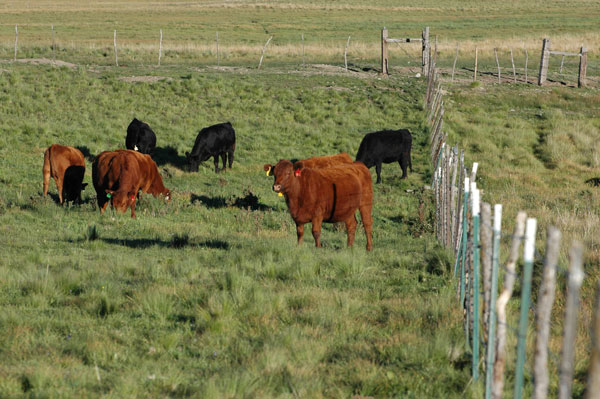July 7, 2016

American consumers are cynical, and they have every right to be. For example, we sell them organic, gluten-free, antibiotic-free and hormone-free beef with the promise that is healthier for them, better for the environment and better for the animals. In almost every case, however, there is no discernable difference in these key areas between the “free” beef and traditionally-produced beef. In my opinion, consumers likely pay more for a product that isn’t any healthier or environmentally friendly.
I’m certainly not one who condemns someone for choosing one of these terms to market their product. Perceptions have been created and we are merely taking advantage of them, even if it has the negative consequence of reinforcing these misconceptions. I even have to admire those who advertise gluten-free beef, for their chutzpah if not for their ethics.
However, the cumulative effect of capitalizing on these misconceptions is doing irreparable harm to the industry and ultimately must be addressed. All of these marketing initiatives are creating one viewpoint that is harmful to everyone in the long run; that what we eat and how it is produced is largely negative.
Most people believe their diet is bad for them, most people believe that the use of technology and efficient business models are inherently wrong – from a moral or personal standpoint. The problem is that we are in a vicious cycle. Consumer misperceptions create opportunities for marketers who reinforce these misperceptions. The result is narrowing demand and the belief that food is not something to be enjoyed but rather a necessary evil for survival.
In fact, one of the most widespread beliefs at a subconscious level is that the more you remain in the mainstream, the less enjoyment you derive from eating; and the more sacrifices you make in buying, preparing and consuming your diet, the more likely it is to be good for you.
That may be very good news for growers of beets and brussel sprouts, but that doesn’t bode well for the beef industry. Beef tastes good, so conversely tofu is great, and chicken must be healthier. Of course, if you put the right breading on chicken and fry it, you can even make that taste good. So obviously, fried is not the way we believe we should eat chicken.

70+ photos showcasing all types of cattle nutrition
Readers share their favorite photos of cattle grazing or steers bellied up to the feedbunk. See reader favorite nutrition photos here.
The trendlines are clear and well established and good-tasting food is in the crosshairs. If food is enjoyable to consume, it is bad. By its very definition, niche markets cannibalize the larger main market. But in the case of the food industry, it is not only cannibalizing the pie, it is shrinking the pie as well.
Perhaps as an industry we need to let people know that eating should be fun and enjoyable and that just because it tastes good doesn’t mean it is bad for you or the environment; that science not only reduces cost and the impact on the environment but also enhances the welfare of animals and the healthfulness of beef. Maybe we should begin to market against the niches, e.g. not only is this non-organic milk healthier and safer for the environment, but also better tasting and less costly.
Perception rules over facts, but there is no rule that the mainstream market and mainstream producers can’t create their own perceptions.
The opinions of Troy Marshall are not necessarily those of beefmagazine.com and the Penton Agriculture Group.
You might also like:
9 new pickups for the ranch in 2016
Use cow-pie-ology to monitor your herds nutritional status
70 photos of hardworking beef producers
5 must-do steps for fly control on cattle
Here's when you should castrate beef valves
Photo Tour: World's largest vertically integrated cattle operation
About the Author(s)
You May Also Like



